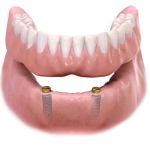How to Handle a Dental Emergency: Essential Tips
- 1. Recognizing a Dental Emergency
- 2. Common Dental Emergencies and How to Handle Them
- 3. Managing Dental Pain Before You See a Dentist
- 4. When to Seek Immediate Dental Care
- 5. Real-Life Case: How Quick Action Saved a Tooth
- 6. Preventing Dental Emergencies in the Future
1. Recognizing a Dental Emergency
Knowing how to handle a dental emergency starts with recognizing when you’re in one. A dental emergency typically involves situations where immediate treatment is necessary to prevent further damage or alleviate pain. Some common signs of a dental emergency include severe tooth pain, bleeding gums, or a knocked-out tooth. Any situation that causes intense discomfort or risks your oral health should be treated as an emergency.
For instance, if you’ve recently experienced a hard blow to the mouth and feel extreme pain, you may have cracked or dislodged a tooth. In such cases, it’s crucial to act quickly to prevent additional damage. Similarly, a sudden infection or abscess can lead to severe pain and swelling that might need immediate attention from a dentist. Recognizing these signs will help you manage the situation before you can get professional help.
2. Common Dental Emergencies and How to Handle Them
1. Knocked-Out Tooth
One of the most common and alarming dental emergencies is a knocked-out tooth. If this happens, time is of the essence. First, try to recover the tooth, holding it by the crown and avoiding the root. Rinse it gently with water (don’t scrub or remove any tissue attached to the tooth) and try to place it back into the socket. If this isn’t possible, store the tooth in a cup of milk or saline and seek dental care immediately. The sooner you get to a dentist, the better the chances of saving the tooth.
2. Severe Toothache
A severe toothache, especially one that’s persistent or worsens with time, is often a sign of infection or tooth decay. In the short term, you can manage the pain by rinsing your mouth with warm saltwater and taking over-the-counter pain relievers. Avoid placing heat or cold directly on the tooth, as this may aggravate the pain. If the pain persists, it’s important to schedule an appointment with your dentist as soon as possible.
3. Broken Tooth
If a tooth is broken or fractured, it’s important to assess whether it’s causing pain or bleeding. If you’re not experiencing pain, you may be able to wait until normal office hours, but it’s still essential to get checked by a dentist. If there is pain or visible damage, you should seek emergency care immediately. You can use cold compresses to reduce swelling, and avoid chewing on the affected side until the issue is addressed.
3. Managing Dental Pain Before You See a Dentist
Dental pain can be excruciating, but there are several strategies you can use to manage it until you can see your dentist. Over-the-counter pain medications like ibuprofen or acetaminophen can help alleviate discomfort. Be sure to follow the recommended dosages on the label, and never apply aspirin directly to the gums or teeth, as it can cause burning or irritation.
In addition to pain relievers, using a cold compress on the outside of your cheek can reduce swelling and numb the pain. Avoid any hot or cold foods and drinks, as they may worsen sensitivity or pain. If you have a dental abscess, rinsing your mouth with warm saltwater may help drain the infection and reduce pain temporarily. However, you should still seek professional care as soon as possible.
4. When to Seek Immediate Dental Care
While some dental issues can wait for a scheduled appointment, others require immediate care to prevent complications. If you experience uncontrollable bleeding, swelling in the mouth or face, or difficulty swallowing, these are signs that you need to seek emergency dental care right away. Additionally, if you’ve suffered a traumatic injury to the mouth or face, or if you suspect you may have a jaw fracture, don’t hesitate to contact an emergency dentist or go to the nearest hospital.
Even if the symptoms seem to subside, it’s important not to delay getting professional help. Some dental issues, such as infections, may not show symptoms immediately but can progress rapidly and lead to serious complications if left untreated.
5. Real-Life Case: How Quick Action Saved a Tooth
John, a local athlete, recently faced a dental emergency during a game. After an accidental elbow to the face, he felt a sharp pain and realized he had lost one of his front teeth. Despite the shock, John knew exactly what to do – he quickly retrieved the tooth, rinsed it with water, and stored it in a cup of milk. Within 30 minutes, he was at the dentist’s office.
Thanks to his quick thinking, John’s tooth was successfully re-implanted, and he avoided a permanent loss. This case highlights the importance of knowing how to handle a dental emergency properly and seeking immediate care when necessary.
6. Preventing Dental Emergencies in the Future
While accidents are sometimes unavoidable, there are steps you can take to reduce the likelihood of dental emergencies. Regular dental checkups are essential to catch potential problems early, such as cavities or gum disease, before they become serious issues. Additionally, wearing a mouthguard during sports can protect your teeth from accidental injuries. Avoiding hard or sticky foods and using proper techniques when brushing and flossing also helps maintain your oral health and reduces the risk of injury.
By practicing good dental hygiene and taking preventative measures, you can lower your chances of experiencing a dental emergency and ensure your teeth stay healthy and strong for years to come.







 Cary Family Dental4.0 (734 review)
Cary Family Dental4.0 (734 review) St. Bernard Hospital Dental Center3.0 (44 review)
St. Bernard Hospital Dental Center3.0 (44 review) Pinnacle Peak Family Dentistry4.0 (439 review)
Pinnacle Peak Family Dentistry4.0 (439 review) Yonkers Dental Implants Center4.0 (63 review)
Yonkers Dental Implants Center4.0 (63 review) City Dental- Dental Implants and Orthodontics4.0 (40 review)
City Dental- Dental Implants and Orthodontics4.0 (40 review) Dental Dreams4.0 (967 review)
Dental Dreams4.0 (967 review) The Importance of Oral Health Education During Pregnancy for a Healthy Pregnancy
The Importance of Oral Health Education During Pregnancy for a Healthy Pregnancy Best Tips for Brushing Your Teeth Properly for Healthy Gums: Essential Techniques for Oral Health
Best Tips for Brushing Your Teeth Properly for Healthy Gums: Essential Techniques for Oral Health Why Skipping Dental Checkups Can Lead to Bigger Oral Health Problems
Why Skipping Dental Checkups Can Lead to Bigger Oral Health Problems Advantages of Porcelain Dental Restorations
Advantages of Porcelain Dental Restorations How Can Diabetes Cause Tooth and Gum Problems? Preventing and Managing Oral Health Issues
How Can Diabetes Cause Tooth and Gum Problems? Preventing and Managing Oral Health Issues Healthy Habits for Promoting Good Oral Health and Hygiene: Tips for a Healthy Smile
Healthy Habits for Promoting Good Oral Health and Hygiene: Tips for a Healthy Smile